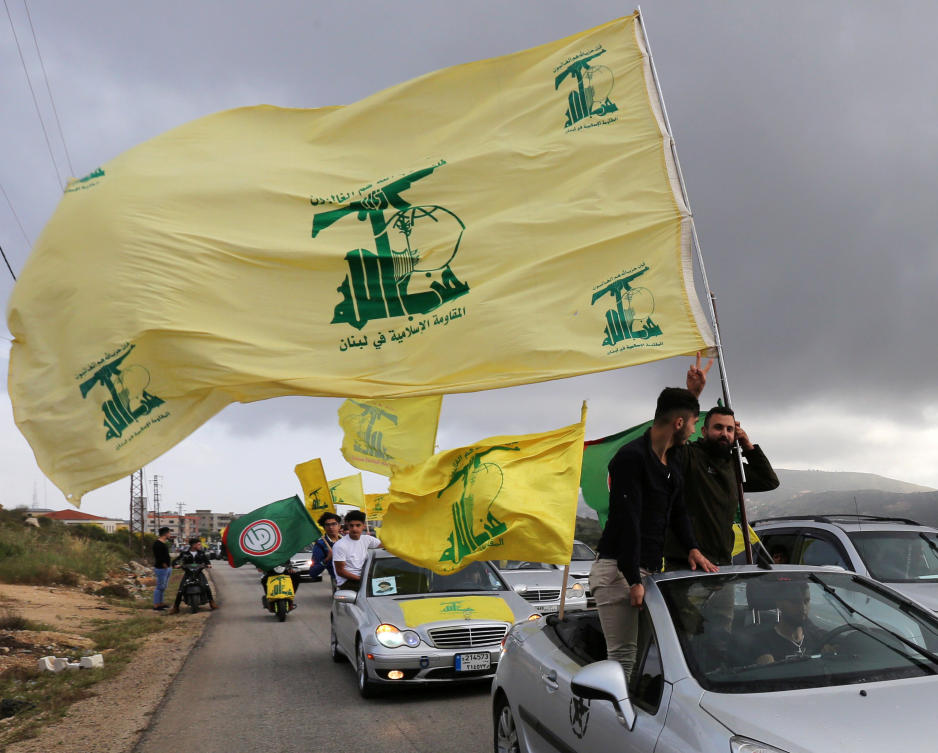Pope Francis and Al-Azhar’s Sheikh Ahmed Al-Tayeb sign declaration of fraternity in Abu Dhabi
ABU DHABI: The first day of the historic visit by Pope Francis to the Arabian Peninsula ended with the signing of a “Human Fraternity Document” by the leader of the Roman Catholic Church and one of the highest authorities in Islam, Sheikh Ahmed Al-Tayeb, grand imam of Al-Azhar Mosque.
The declaration of fraternity — which pledges the religious leaders to work together in perpetuity and to reject violence and radicalism — was also signed by Sheikh Mohammed bin Rashid Al-Maktoum, prime minister of the UAE, which hosted the ceremony in its capital Abu Dhabi.
The pope told an audience: “Fraternity is established here at the roots of our common humanity, as a vocation contained in God’s plan of creation.”
His address centered on the themes of fraternity, education, justice, and human development built on inclusion.
“There is no alternative,” he added. “We either build the future together, or there will not be a future. Religions, in particular, cannot renounce the urgent task of building bridges between peoples and cultures.” The speech was delivered in Italian translated into Arabic for most in the audience.
Al-Tayeb said: “The document is historic, and it calls for policymakers to stop bloodshed and conflict. Muslims must protect their Christian brothers. I will work with my brother and friend Pope Francis to protect all communities.”
The grand imam added: “It is encouraging to see the UAE investing in human resources, and especially the youth. Far-sightedness and wisdom transformed the UAE into a bright country that hosts such a meeting.”
He said: “Muslims in Western countries must follow and respect the rules and regulations of the countries in which they reside.”
The Western media “exploited” the 9/11 attacks in the US “to show Islam negatively as a bloodthirsty religion, and to show Muslims as savage barbarians who pose a danger and threat to modern societies,” he added, quoting numerous Qur’anic verses about the value of life.
The pope aimed a slanted barb at modern economic inequality, saying: “The world’s religions also have the task of reminding us that greed for profit renders the heart lifeless, and that the laws of the current market, demanding everything immediately, do not benefit encounter, dialogue and family … Religions should be the voice of the least, who are not statistics but brothers and sisters.”
The route of #PopeFrancis through the #UAE‘s capital #AbuDhabi on the first full day of his trip. https://t.co/VUOo20qDSv #PopeFrancisinUAE #PopeinUAE pic.twitter.com/xnJ5SYeazP
— Arab News (@arabnews) February 4, 2019
He added: “Here, in the desert, a way of fruitful development has been opened which, beginning from the creation of jobs, offers hope to many persons from a variety of nations, cultures and beliefs.”
He continued: “Religious freedom is not limited to freedom of worship, but to others as brothers in humanity … We must have the courage to accept and recognize freedom of the other.”
The pope also held out the promise of further visits to Islamic countries, saying: “It is in this spirit that I look forward to concrete opportunities for meeting, not only here but in the entire beloved region, a focal point of the Middle East.”
Al-Maktoum offered a deed for the plot of land on which the first church in the UAE was built. There are an estimated 76 churches and other non-Muslim places of worship in the country.
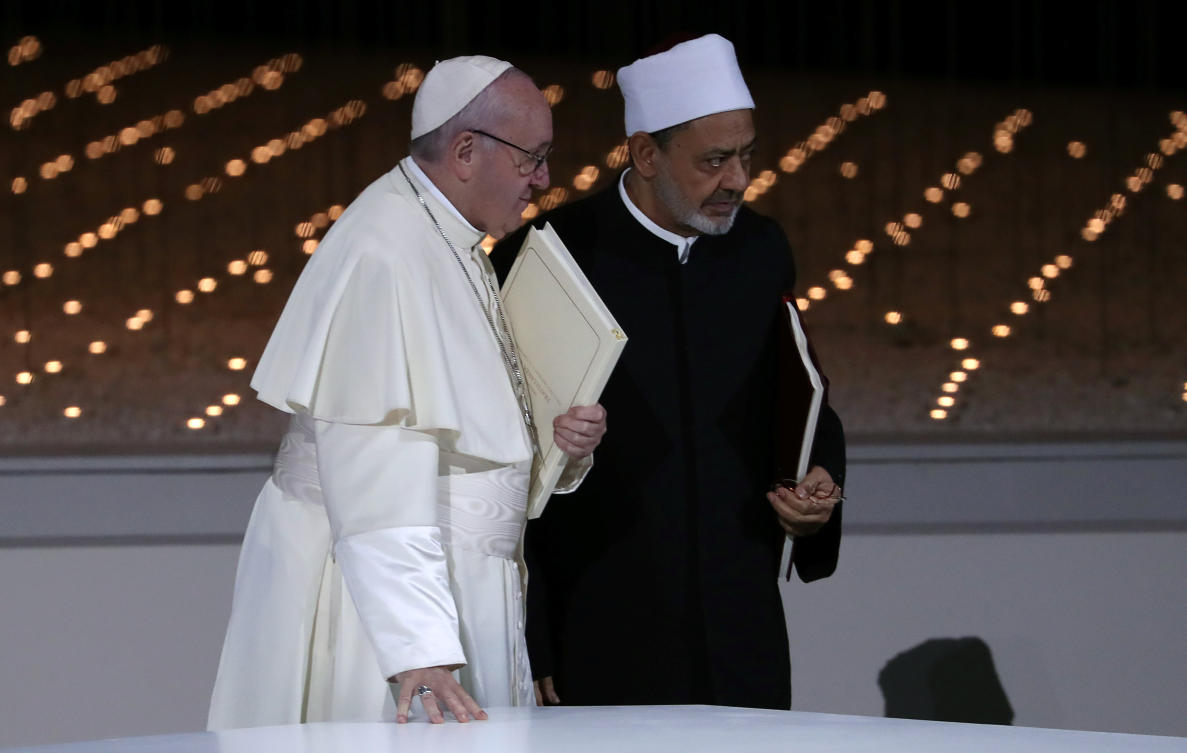
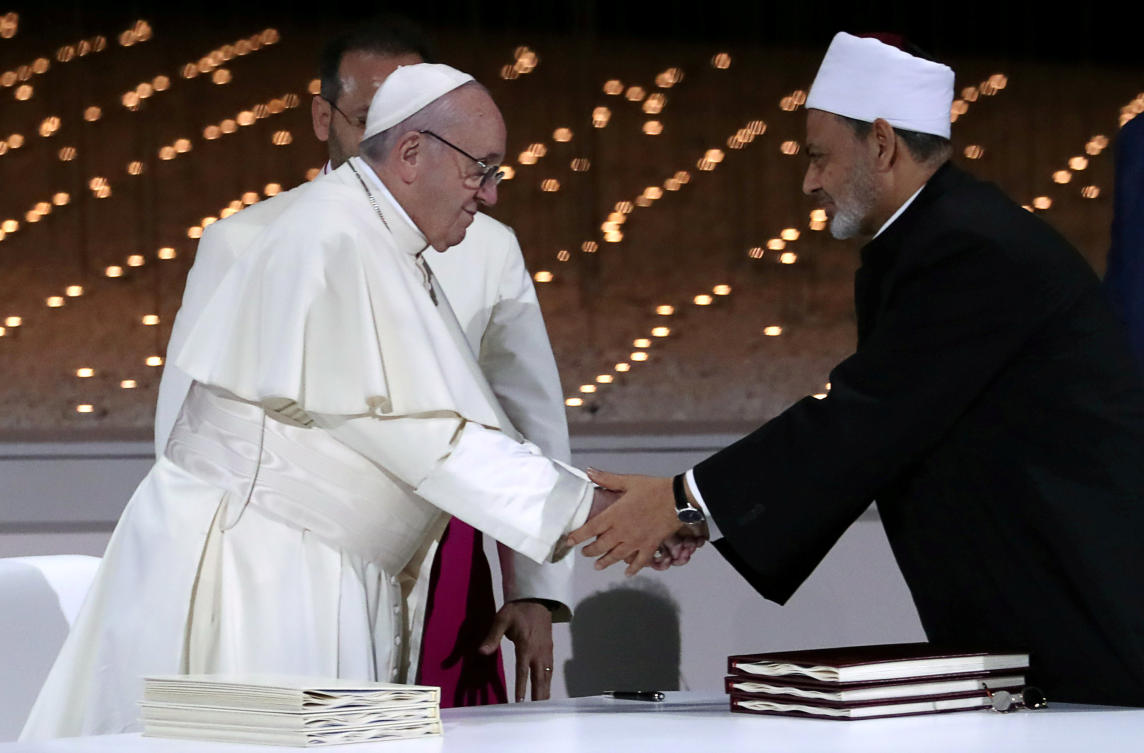
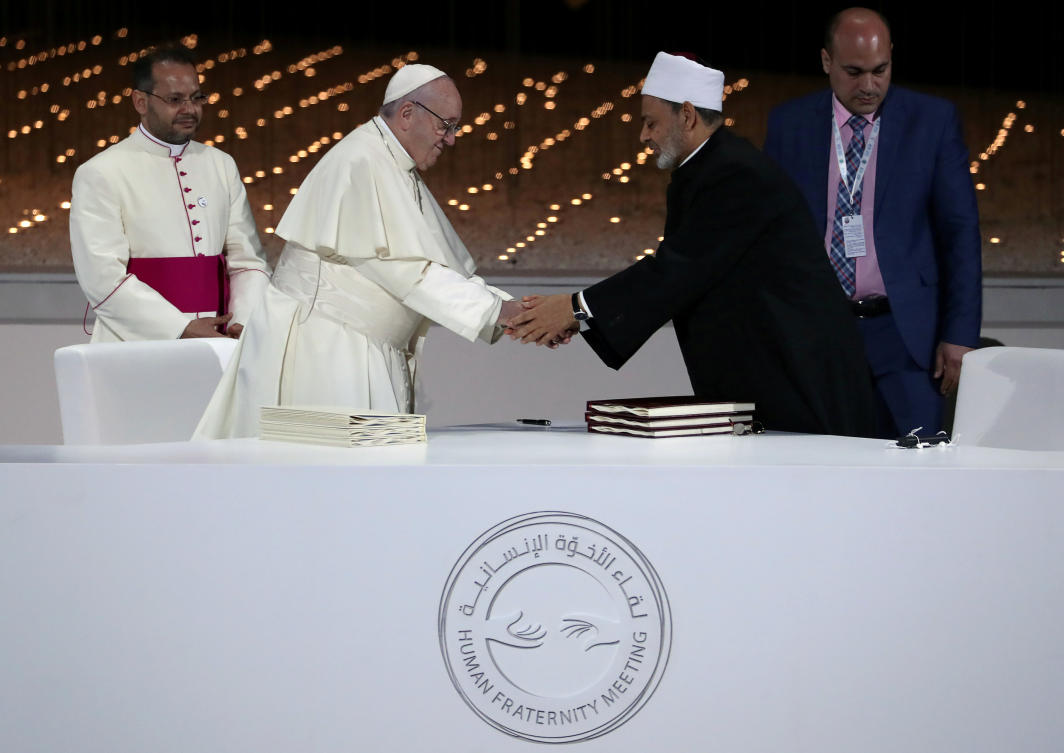
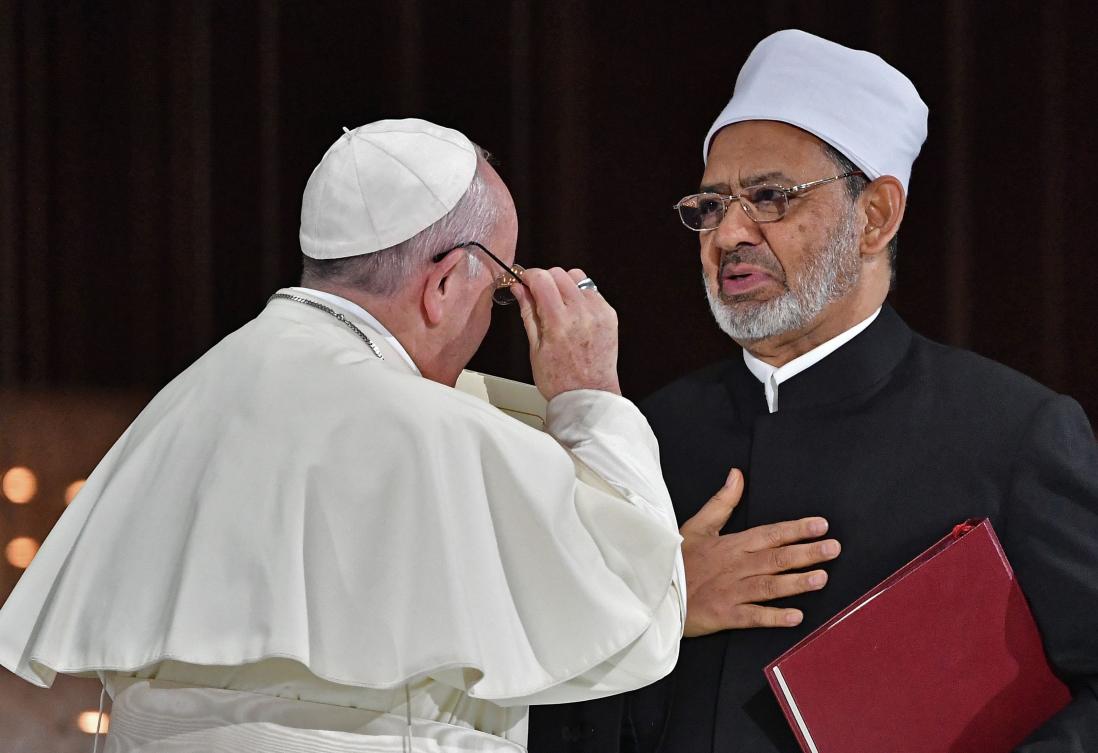
Pope Francis meets Muslim leaders in Abu Dhabi on historic UAE visitPope’s visit generating hope for a new era of tolerance in the Gulf

